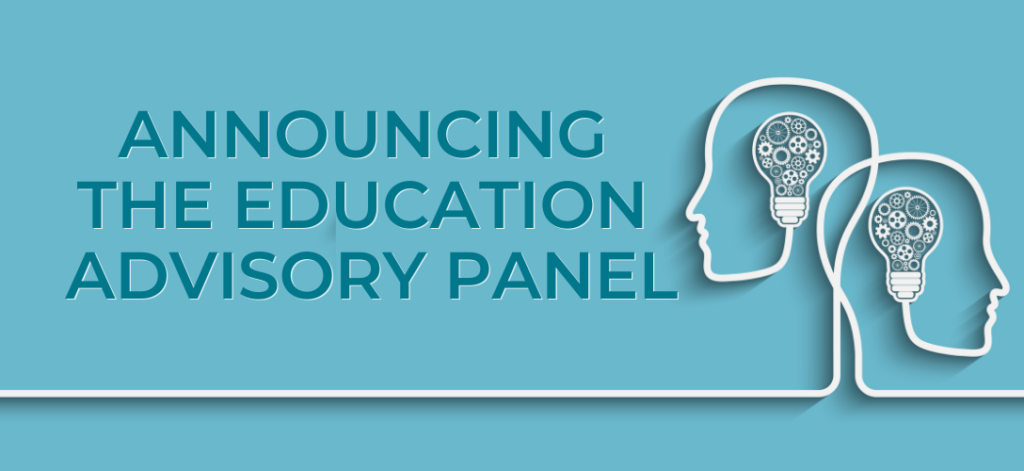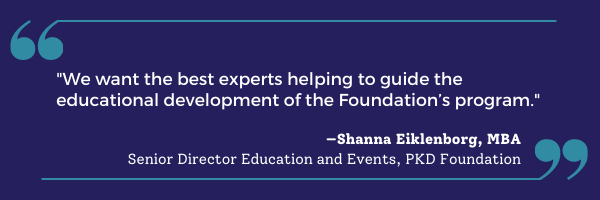
Published on August 24, 2021 | At the PKD Foundation, we believe education is key in creating better patient outcomes. And when it comes to PKD, it’s imperative that patients, caregivers, physicians, and healthcare providers are on the same page. Importantly, that they share a common language and learning process. That’s where the PKD Foundation can help. We want to ensure the education we provide is robust, designed with the voice of the patient, and focused on the most appropriate topics for PKD patients. Because of those goals, we’re launching the Education Advisory Panel (EAP).
What is the Education Advisory Panel?
The Education Advisory Panel will consist of inter-professional and multidisciplinary members to reflect a whole person, team-based approach to managing PKD. Within the Foundation, the EAP will serve as a resource to guide the development of the Foundation’s education. This holistic view of the PKD patient’s journey will allow us to create education that is scientific-based, timely, and focused on practical, realistic to implement changes for PKD patients.
This group of experts, including patients and caregivers, will also allow us to expand our educational offerings to everyone who treats patients with PKD. In addition, it expands our ability to create a shared language for patients, physicians, and other members of the care team.
How will the EAP help patients?
In creating the EAP, our goal is to improve PKD patient care. But how do we do that? Through education, we’ll help empower patients to advocate with their health care provider and make daily decisions to promote their health. Also, we’ll create education for health care providers to help them understand how patients experience the disease and teach them best practices in PKD treatment.
How can I get involved with the Education Advisory Panel?
There are two ways that members of the PKD community can get involved with the EAP. First, there are multiple roles that need to be filled on the EAP.
- Nephrologists (One ADPKD specialist, one pediatric nephrologist)
- Family medicine /Internal medicine physician
- PKD Patient
- Caregiver
- Renal nurse
- Renal dietician
- Pain specialist
- Radiologist
If you fit into one of those categories and have experience developing education, apply today! In order to be considered, you must apply by September 15.
Second, if you know someone in one of the other categories, please share this opportunity with them.

As the EAP starts its work, we’ll keep you updated and informed. We look forward to improving PKD education for the entire PKD community and beyond!
Looking for more PKD education? We can help! As you start your PKD journey, these resources can help you at every step along the way. And even more educational webinars, including sessions from the 2021 PKD Connect Conference, will be uploaded soon.









0 Comments
Trackbacks/Pingbacks